
 |
|
|
Corn
Volume 63 Number 5 Date 05/31/2018 EUROPEAN CORN BORER - Emergence of spring moths began this week, with low numbers of 2-7 moths per trap captured in the Columbia, Fond du Lac, Monroe and Walworth County black light traps. The degree day model for this pest suggests egg deposition is occurring nearly statewide (in areas where 450 degree days [modified base 50°F] have been surpassed), except for the far northern counties. If warm temperatures continue, the first flight is forecast to peak by June 9 in the southern and central counties and June 16 in the north. BLACK CUTWORM - Crop advisors and growers should continue to inspect emerging corn for signs of cutworm infestation, particularly fields with soybean residue or earlier broadleaf weed problems. One report of minor feeding damage was received from Rock County in the past week, though economic injury (>3% of plants damaged) has not been observed by DATCP surveyors as of May 31. As a reminder, cutworm larvae are capable of damaging corn protected with a Bt trait, usually in situations where larvae first develop on weeds or cover crops and are forced by late herbicide applications onto Bt corn when they are larger and less susceptible to Bt toxins. The threshold for corn is when 3% of plants show evidence of cutworm feeding. Summarized in the map below are cumulative moth counts for the period of April 12-May 31. The spring trapping survey resulted in the capture of 1,984 black cutworms in 47 traps, with a high count of 149 moths near Mineral Point in Iowa County. TRUE ARMYWORM - Minor flights have been documented in black light traps for several weeks, signaling a potential for larval infestations in small grains and corn. Reduced tillage corn following sod or a small grains cover crop, and fields with early-season grassy weed pressure are at higher risk for armyworm problems. -- Krista Hamilton, DATCP Entomologist 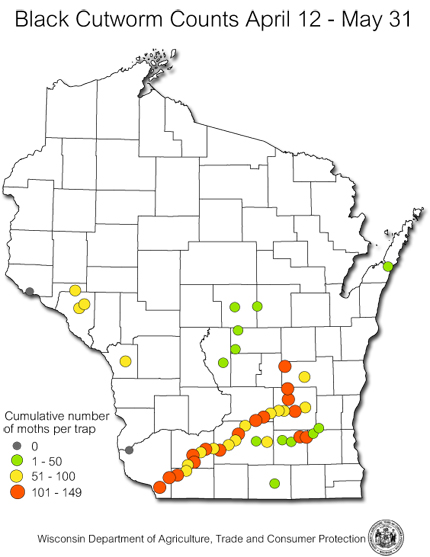
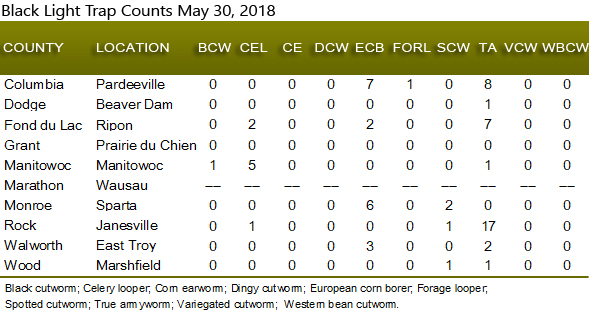
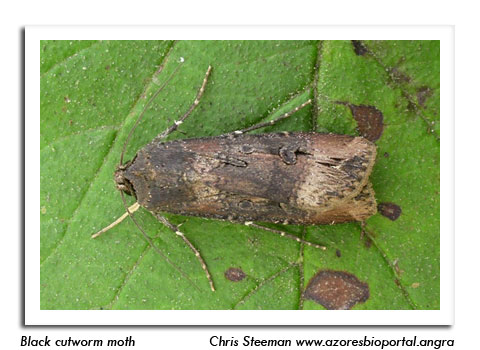
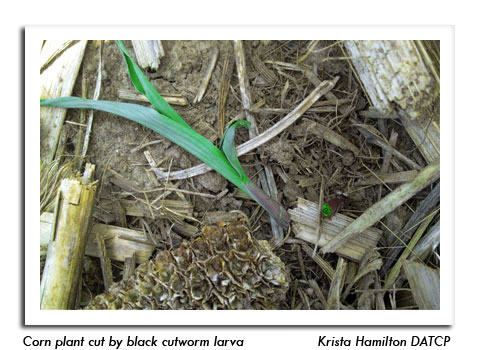
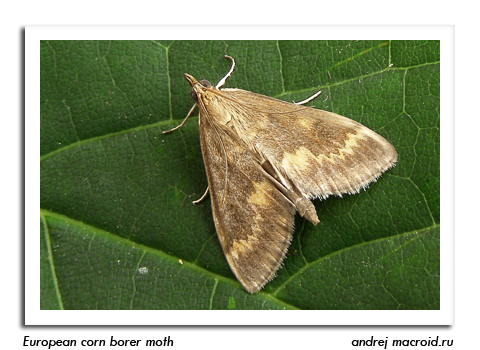
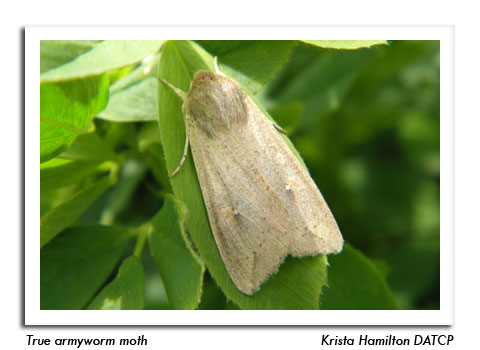
|
|
|